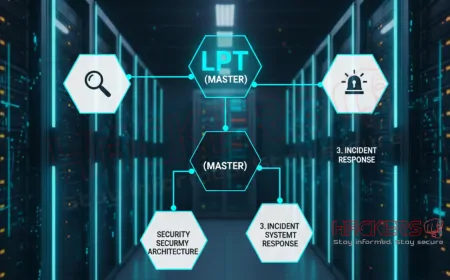Top 10 Reasons to Use Onion Search Engine for Privacy and Security
In a world where every click, search, and post can be tracked, staying private online feels like a challenge. As someone who values keeping my digital footprint hidden, I’ve explored the dark web and discovered the power of onion search engines. These tools, designed to navigate the hidden .onion sites of the dark web, offer a unique way to browse anonymously and securely. Whether you’re a journalist protecting sources, a privacy enthusiast, or just curious about the hidden internet, onion search engines are a game-changer. In this blog, we’ll dive into the top 10 reasons to use onion search engines in 2025, focusing on their privacy and security benefits. Written in simple terms, this guide is perfect for beginners and tech-savvy readers alike.

Table of Contents
- What Is an Onion Search Engine?
- Top 10 Reasons to Use Onion Search Engines
- Comparison of Onion Search Engines
- How to Use Onion Search Engines Safely
- Conclusion
- Frequently Asked Questions
What Is an Onion Search Engine?
An onion search engine is a specialized tool that indexes and searches websites with .onion domains on the dark web, a hidden part of the internet accessible only through the Tor browser. Unlike Google or Bing, which focus on the surface web, onion search engines find hidden sites like private forums, whistleblower platforms, or marketplaces. They’re built to prioritize user privacy, avoiding tracking or logging your activity. The term “onion” comes from Tor’s onion routing, which layers your internet traffic through multiple servers to keep you anonymous. These engines are essential for anyone wanting to explore the dark web securely and privately.
Top 10 Reasons to Use Onion Search Engines
Onion search engines offer unique benefits for privacy and security. Here are the top 10 reasons to use them:
- Enhanced Anonymity: Onion search engines don’t track your searches or store personal data, keeping your identity hidden.
- Access to Hidden Content: They let you find .onion sites, like secure forums or whistleblower platforms, unavailable on the surface web.
- Bypassing Censorship: In regions with internet restrictions, they provide access to uncensored information.
- Safe Browsing with Filtering: Many engines filter out illegal or harmful sites, reducing the risk of encountering dangerous content.
- Support for Research and Journalism: They help journalists and researchers access anonymous sources or sensitive data securely.
- No Ad Tracking: Unlike surface web search engines, they don’t use ads or trackers, protecting your browsing habits.
- Community-Driven Security: Some engines, like Not Evil, use community moderation to block malicious sites, enhancing safety.
- Open-Source Options: Engines like Ahmia are open-source, letting users verify their code for transparency and trust.
- Clearnet Accessibility: Some engines can be accessed via regular browsers, making them beginner-friendly while linking to .onion sites.
- Protection Against Surveillance: They operate within Tor, shielding you from government or corporate surveillance.
A friend once used an onion search engine to research data privacy anonymously, avoiding trackers that follow her on the surface web. It’s a powerful way to stay private.
Comparison of Onion Search Engines
Below is a table comparing popular onion search engines in 2025, highlighting their privacy and security features.
| Search Engine | Privacy Features | Security Features | Best For |
|---|---|---|---|
| Ahmia | No tracking, open-source | Filters illegal content | Beginners, safe browsing |
| Torch | No user tracking | Unfiltered, needs caution | Advanced users |
| Haystak | No logs, premium privacy | Large index, some filtering | Researchers |
| Not Evil | No tracking, community-driven | Moderates harmful sites | Safe exploration |
| Candle | No tracking, open-source | Minimalist, basic filtering | Quick searches |
Ahmia: Open-source and beginner-friendly, Ahmia avoids tracking and filters illegal content, ensuring safe, private searches.
Torch: With a massive index, Torch offers broad results but lacks filtering, requiring extra caution for security.
Haystak: Ideal for researchers, Haystak’s 1.5 billion+ page index and premium privacy features protect deep searches.
Not Evil: Community moderation blocks harmful sites, and its no-tracking policy ensures privacy for safe browsing.
Candle: Minimalist and open-source, Candle provides quick, private searches with basic security filtering.
How to Use Onion Search Engines Safely
The dark web can be risky, so using onion search engines safely is crucial. Here are practical tips:
- Install Tor Browser: Download Tor from its official site to access .onion sites anonymously.
- Use a VPN: A Virtual Private Network hides your IP address, adding privacy before connecting to Tor.
- Choose Trusted Engines: Stick to reputable engines like Ahmia or Not Evil to avoid malicious sites.
- Avoid Suspicious Links: Don’t click unverified .onion links to prevent malware or phishing scams.
- Enable Tor’s Safest Mode: Set Tor’s security to the highest level to block risky scripts.
- Never Share Personal Info: Avoid using real names, emails, or credentials on the dark web.
- Use Antivirus Software: Protect your device with up-to-date antivirus to block potential malware.
- Verify .onion URLs: Check links against trusted directories like The Hidden Wiki to avoid fakes.
- Clear Browsing Data: Regularly clear Tor’s cache and cookies to maintain anonymity.
- Stay Legal: Avoid illegal activities to steer clear of legal consequences.
I once helped a colleague set up Tor with a VPN for dark web research, and it gave her confidence knowing her privacy was protected.
Conclusion
Onion search engines are powerful tools for anyone seeking privacy and security online. By offering anonymity, access to hidden content, and protection against tracking, they’re ideal for journalists, researchers, or anyone wanting to bypass censorship. Engines like Ahmia, Haystak, and Not Evil provide safe, user-friendly ways to explore the dark web’s .onion sites. However, the dark web’s risks—malware, phishing, and illegal content—require careful navigation. Using Tor, a VPN, and trusted search engines ensures you stay secure while browsing. In 2025, onion search engines are more accessible than ever, making them a must-have for privacy-conscious users. Start exploring safely today and take control of your online privacy.
Frequently Asked Questions
What is an onion search engine?
It’s a tool that searches .onion websites on the dark web, designed to protect user privacy and anonymity.
What is the dark web?
The dark web is a hidden internet layer with .onion sites, accessible only via Tor for anonymous browsing.
How does onion routing protect privacy?
It routes your traffic through multiple encrypted servers, hiding your identity and location.
Why can’t I use Google for .onion sites?
Google doesn’t index .onion sites, which require Tor due to their encrypted, anonymous nature.
Is using onion search engines legal?
Yes, using them is legal, but engaging in illegal activities on the dark web is not.
How does Ahmia protect privacy?
Ahmia avoids tracking and uses open-source code, ensuring transparent, private searches.
Is Torch safe to use?
Torch’s unfiltered results can be risky, so use it with a VPN and antivirus for safety.
Why is Haystak good for researchers?
Haystak indexes over 1.5 billion pages and offers premium features for deep, private searches.
How does Not Evil ensure security?
Not Evil uses community moderation to block harmful sites, enhancing browsing safety.
What makes Candle user-friendly?
Candle’s minimalist, open-source design makes it easy for quick, private searches.
Do I need Tor for onion search engines?
You need Tor to access .onion sites in results, though some engines have clearnet versions.
Why use a VPN with onion search engines?
A VPN hides your IP address, adding extra privacy when browsing the dark web via Tor.
What risks come with onion search engines?
Risks include malware, phishing, illegal content exposure, and privacy leaks if not configured properly.
Can I get malware from onion search engines?
Yes, unverified links can lead to malware. Use antivirus and stick to trusted engines.
How do onion search engines avoid tracking?
They don’t log searches or user data and operate within Tor’s anonymous network.
Why is Tor browsing slow?
Tor routes traffic through multiple servers for anonymity, which slows down connections.
Can onion search engines access all .onion sites?
No, some sites are unindexed or hidden, and the dark web’s fluid nature leads to outdated results.
What is The Hidden Wiki?
It’s a directory of .onion sites, useful for verifying URLs found through onion search engines.
Can onion search engines help journalists?
Yes, they provide secure access to anonymous platforms for communicating with sources.
How do I start using onion search engines safely?
Install Tor Browser, use a VPN, choose trusted engines like Ahmia, and avoid sharing personal info.
What's Your Reaction?










































































